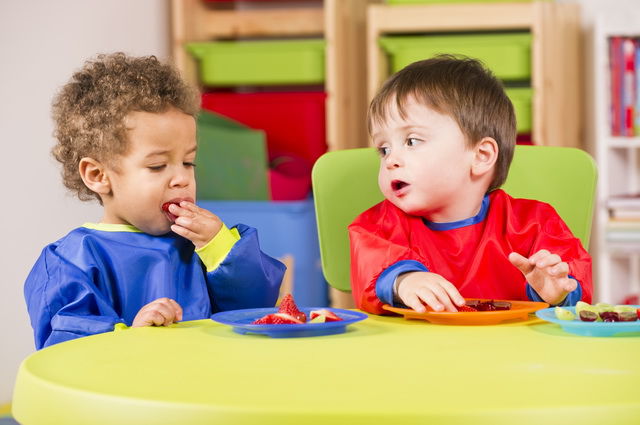Referral Information
When to Refer to MGP Speech Pathology?
A referral for speech therapy is recommended if the following difficulties have been identified:
- Family members or carers are concerned about their child’s speech or language development
- The child is frustrated trying to communicate
- The child is having difficulty understanding what is said to him/her, or following instructions
- The child is having difficulty eating, or is a particularly fussy eater
- The child has a history of middle ear infections and was slow to develop language
- The child is not using single words by 18 months of age
- The child is not using 2 word sentences at 2½ years of age
- The child’s speech is difficult to understand at 3 years of age
- The child’s speech is nasal or husky
- The child’s speech is hesitant or dysfluent
- The child is experiencing difficulty learning to read
- The child is struggling at school, or if the child’s teacher is concerned
- The child is struggling with reading, spelling or processing instructions in the classroom
How to Refer to MGP Speech Pathology
No formal referral is needed to access services at MGP Speech Pathology, although a Medicare rebate may be available with an eligible referral from a GP.
You can refer directly to MGP Speech Pathology by calling or emailing us (M: 0433 617 108 / E: info@mgpspeech.com.au), or completing our online enquires form here.
We welcome all referrals and receive referrals from a range of professions including: GPs, Paediatricians, ENT specialists, audiologists, teachers, occupational therapists, physiotherapists, psychologists and dietitians.
For more information, or to make a referral, please Contact Us.
Speech & Language Development
Parents commonly ask: Is my child’s speech and language developing appropriately?
While it is acknowledged that children all develop at individual rates, there is a general pattern to a child’s speech and language development. The following information provides some general guidelines with respect to this general ‘milestones’ of speech and language development.
| By the age of ONE your baby should be able to: - Recognise and respond to their own name and familiar requests
- Understand the names of familiar objects or people
- Say ‘dada’ and ‘mama’ and a few other words
- Attempt to make familiar sounds (e.g. animal noises, or car sounds)
- Enjoy songs, music and books
| By TWO your toddler should: - Understand simple sentences and questions (e.g. “Where’s Daddy?”)
- Use a vocabulary of approximately 100 words
- Start to join some words together and use simple sentences (e.g. “More drink” / “all gone”)
- Sing simple songs and nursery rhymes
- Talk to themselves or their toys during games and play
- Name pictures in story books
|
| By the age of THREE your child should: - Follow longer directions and point to some parts of the body
- Use three to four word sentences
- Begin using basic grammar, including pronouns
- Enjoy telling stories and asking questions (e.g. ‘what’ and ‘where’ questions)
- Have intelligible speech to familiar listeners (i.e. be understood by familiar adults). Less familiar adults may still have some difficulty understanding the speech of a 3-year old at times.
| By the age of FOUR your child should be able to: - Understand longer, more complex sentences and instructions
- Ask who, what, when and why questions
- Use nearly 1,500 words in four or five word sentences
- Use language when playing with other children
- Speak clearly enough to be understood by most people
|
| By the age of FIVE your child should: - Speak clearly enough to be understood by anyone
- Use sentences of around six words, with mostly correct grammar
- Explain ‘why’ something happens and describe the function of objects
- Say how they feel and tell you their ideas
- Show interest in writing, numbers and reading
- Follow the meaning of conversations
|

